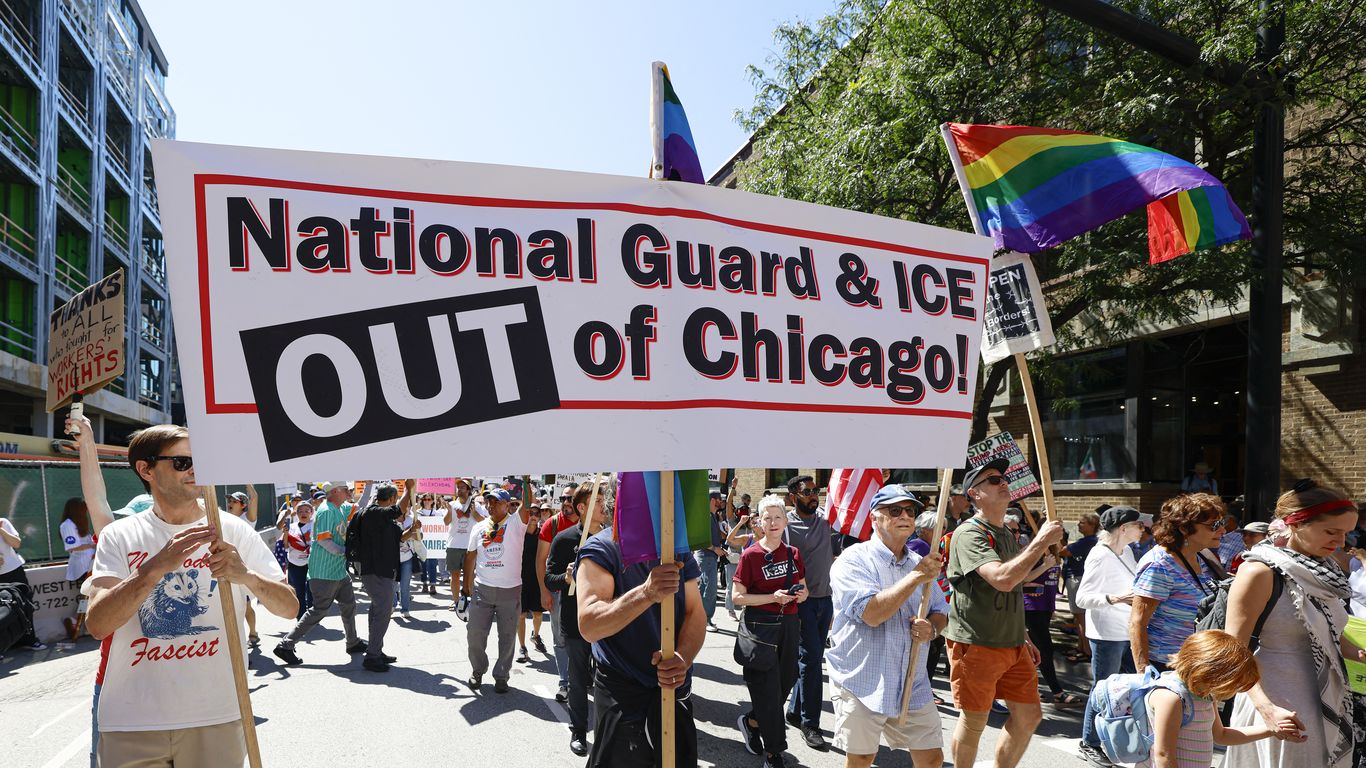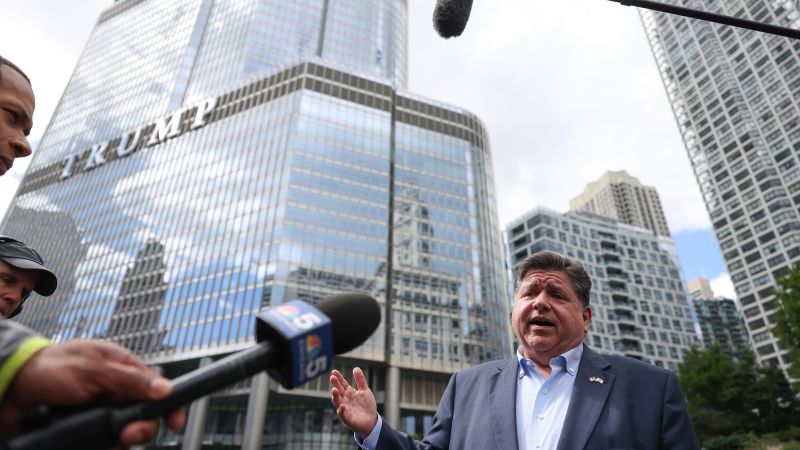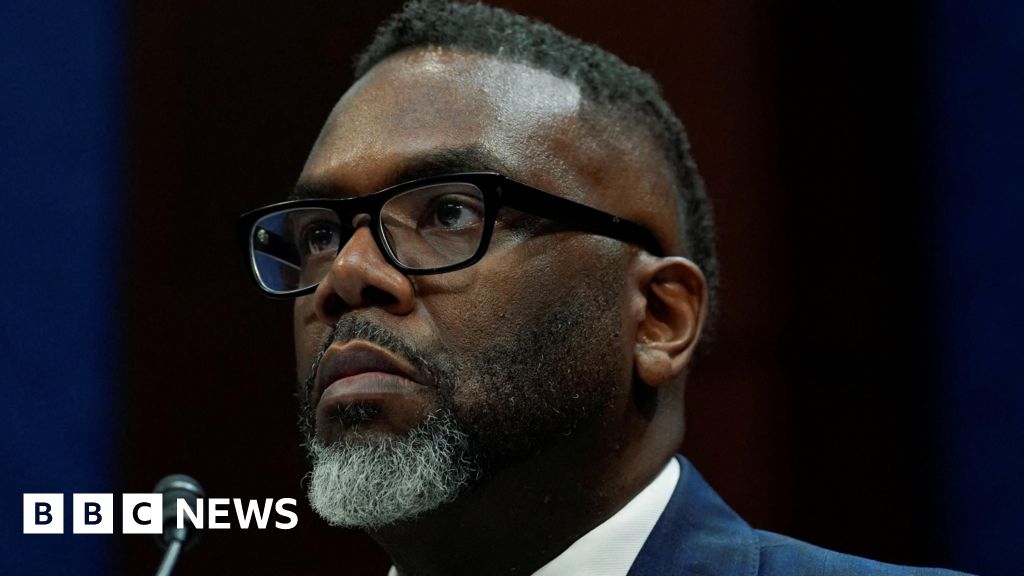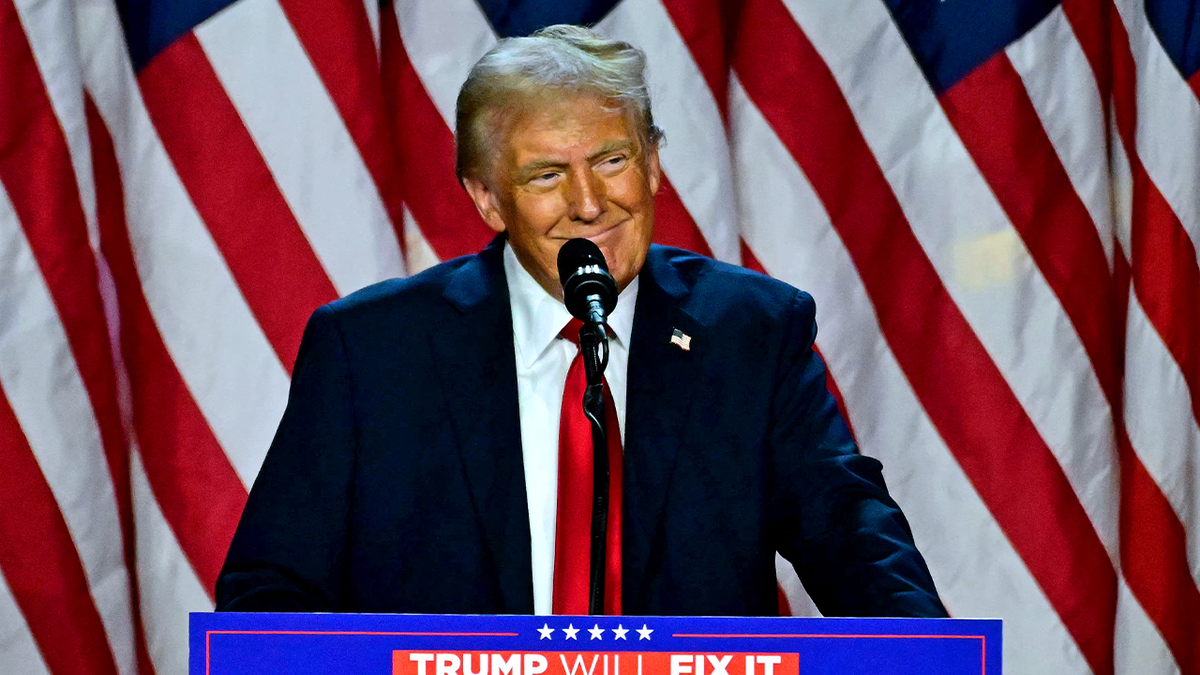Trump's Threat to Chicago: The Impact of Department of WAR

Trump's "Department of WAR" Threat to Chicago
President Trump recently took to Twitter to post a parody meme, threatening to send the "Department of WAR" to Chicago. This comes as the city is bracing for expanded ICE raids, leaving many residents feeling on edge and afraid. The use of the term "WAR" in all caps has sparked concern and backlash, with some questioning the President's intentions and language.
The City's Response
The threat has caused a stir in Chicago, with city officials denouncing the President's tweet and calling for him to instead focus on finding real solutions to the issues the city is facing. Chicago Mayor Lori Lightfoot stated that the President's actions and words are not helpful and only serve to further divide the country.
The Impact
This latest tweet from President Trump has once again brought attention to the ongoing issues in Chicago and the ongoing debate over immigration policies. It also shines a light on the power of social media and the impact of the President's words and actions on the public. It remains to be seen what the actual plan for Chicago is, but for now, the threat of the "Department of WAR" looms over the city.
About the People Mentioned
Donald Trump
Donald John Trump, born June 14, 1946, in Queens, New York, is an American businessman, media personality, and politician. He graduated from the University of Pennsylvania’s Wharton School in 1968 with a degree in economics. In 1971, he took over his family’s real estate business, renaming it the Trump Organization, through which he expanded into building and managing skyscrapers, hotels, casinos, and golf courses. Trump gained widespread fame as the host of the reality TV show *The Apprentice* from 2004 to 2015, which helped establish his public persona as a successful entrepreneur. Trump entered politics as a Republican and was elected the 45th president of the United States, serving from 2017 to 2021. His presidency was marked by significant policy actions including tax cuts, deregulation, the appointment of three Supreme Court justices, renegotiation of trade agreements (notably replacing NAFTA with the USMCA), and a focus on immigration control including border wall expansion. He withdrew the U.S. from international agreements such as the Paris Climate Accord and the Iran nuclear deal, and engaged in a trade war with China. His administration’s response to the COVID-19 pandemic was criticized for downplaying the virus’s severity. Trump was impeached twice by the House of Representatives—first in 2019 for abuse of power and obstruction, and again in 2021 for incitement of insurrection—but was acquitted by the Senate both times. After losing the 2020 election to Joe Biden, Trump challenged the results, culminating in the January 6, 2021, Capitol riot. He remains a central figure in American politics, having won the 2024 presidential election and returned as the 47th president in 2025, continuing to promote policies aimed at economic growth, border security, and military strength[1][2][3][4].

















